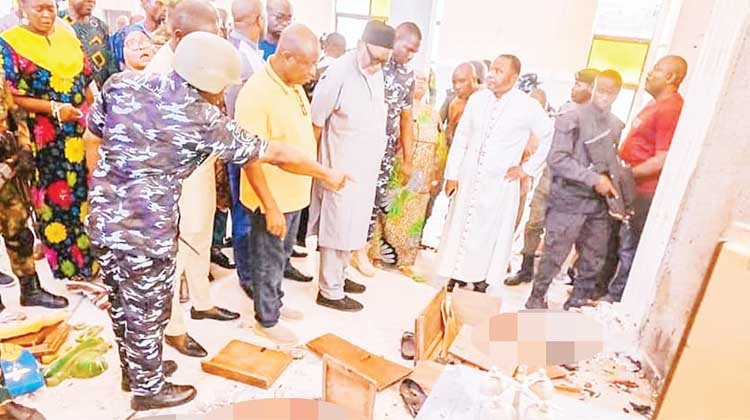
I was a teenager then; precisely, 16. I had received Jesus Christ as my Lord and saviour. It was a momentous event in my life. I wasn’t going to trade the experience for anything in the world. I knew what it meant when the Bible says, “To as many as receive Him, He gave power to become the sons of God.” I had experienced that power of transformation, even though one of my elder sisters had joked that I hadn’t really known what sin was.
Around that time, I was also looking forward to gaining admission into the university. A number of my friends were also at the same stage in life. Chibuzo, my closest friend then was not only born again but was also studying to gain admission into the university.
We knew we were going to gain admission. Even though we had enrolled for A-Levels at the Government Secondary School Owerri, we were convinced that we were going to gain admission through the Unified Tertiary Matriculation Examination. Therefore, we saw our time at the A-Levels as an opportunity to prepare for life at the university. Of particular interest was the defence of our faith in the university.
We knew that the university could swallow a genuine faith. We knew that we would meet people with different ideologies, convictions and practices. However, we were not going to give up our faith for the freedom that would come with gaining admission into the university.
I knew that the acquisition of knowledge was the greatest bulwark I could have for my convictions in God, especially as revealed in Jesus Christ. I must have a reason to give to anyone who would ask of my faith in God. I knew I would be on different pages with university professors. However, I would hold my own. When I read Colossians 2 Vs 8, “Beware, lest any man spoil you through philosophy and vain deceit, according to the tradition of men, after the rudiments of the world, and not after Christ,” I knew I had got a personal warning against rampaging atheistic lecturers.
Two years later, Chibuzo departed for the University of Port Harcourt to read medicine while I left for the University of Nigeria to read mass communication. We kept in touch through the post office. It was in the days of letter writing, not instant messaging.
I did not need to encounter lecturers to know that the university was actually a marketplace of ideas. Right in my room—426 Mbanefo Hall—I could see that we all had different persuasions. Dom, the most senior student in the room (who studied mechanical engineering) was essentially a sybarite. We stayed on opposite sides of the room and the posters on our sides of the walls said as much that our persuasions were diametrically opposed.
Dom had a friend, Teddy, a very intelligent computer science student. Dom and Teddy were not only members of a fraternity but were also united in the love of pleasure and opulence. Ebullient Teddy visited us often. He would engage me in discussions. He left with the impression that I was ‘well prepared’ to encounter him.
Magnus, another roommate, was also an intelligent computer science student. He was quiet and unassuming. A Catholic ex-seminarian, Magnus was also a man of his own convictions. There was no particular clash between us but he once threatened to apply for change of room on my behalf. Within me, I laughed at the impudence.
We were later joined by diminutive Kefas, an engineering student from Taraba State, whom you could not hold down to anything in particular apart from his fondness for pounded yam and some measure of indolence.
Then, there was Camillus, a Hare Krishna devotee, who burnt incense in the room when everyone must have gone out. That was particularly annoying but also challenging. So, within the microcosm of Room 426, we had to learn that the university was a marketplace of ideas. You had no choice but to learn how to accommodate others with varying opinions and persuasions. You could not impose your ideas on others or persecute them for their own convictions.
I had gone into the above details to paint a picture of how I prepared to defend my faith as a young undergraduate in a campus community with a multiplicity of ideas. Of course, we had to do more intellectual work around atheism and atheistic Marxism when these posed threats to faith both on campus and on the global scene.
It was therefore disheartening that students in a tertiary institution in Nigeria lynched their fellow student for allegedly committing blasphemy. It was atrocious that Deborah Samuel was killed in a citadel of learning —the Shehu Shagari College of Education.
The College of Education is a place where teachers are groomed. If these future teachers could not differentiate their left from their right, you wonder what they were going to teach their prospective pupils and students. If the prospective teachers lacked a sense of judgement and did not know that the crime of murder was higher than the alleged crime of blasphemy, then their prospective students were doomed to descend lower. If the prospective teachers were incapable of independent thinking and could act as an ordinary mob, woe to the students that were going to pass through them.
A few days after the killing of Deborah, the decibel of blasphemy and blood was raised again in the country as the life of another girl came under serious threat in Bauchi.
The compass soon moved to the Federal Capital Territory where in the Dei Dei area of Abuja a clash between motorbike operators and timber sellers left a number of persons dead and goods worth billions of naira burnt down.
Within the same circumference of time, blood flowed in Anambra where a lawmaker, Okechukwu Okoye, was beheaded. A woman and her four children were also killed.
Back to the FCT, one 30-year-old Ahmad Usman was stoned and burnt for alleged blasphemy in the Lugbe area of the city on Saturday.
As if to cap it all, on Sunday, the home town of the late Pa Michael Ajasin was desecrated. Gunmen invaded the St Francis Catholic Church, Owo, and massacred scores of worshippers. The governor of the state, Rotimi Akeredolu, an indigene of Owo, was away in Abuja for the All Progressives Congress presidential nomination convention when the massacre occurred.
As usual, politicians are mourning the killings in Owo. They are issuing statements, condemning the deaths. For the President, Major General Muhammadu Buhari (retd.), ‘only fiends from the nether region could have conceived and carried such dastardly act’ and therefore ‘eternal sorrow awaits them both on earth here and ultimately in the hereafter’.
Nigerians are not interested in the eternal fate of the criminals, terrorists, arsonists, kidnappers and those who murder in the name of religion. Crimes have been on the increase because of the failure of the state to apprehend and punish lawbreakers. There is nothing that feeds criminal tendencies like impunity.
Political philosophers had long ago settled the issue of the purpose of the state. Thomas Hobbes, John Locke and Jean-Jacques Rousseau had written extensively on the social contract that the citizens enter with the state. We will not in this piece make a distinction in the writings of these philosophers. However, it is settled in political thought that individuals surrender their might to the state in exchange for protection and defence of their rights, especially their fundamental human rights.
When a state cannot fulfil its basic obligations, it has lost the reason for its existence. Nigeria cannot continue descending into a state of anomie. It is either the state wakes up to its responsibilities or embrace its eventual disintegration. It is disingenuous for the head of a household to be pursuing rats when their house is on fire except they are the ones that set the house on fire.
— Dr Amaefule, a former group business editor at The PUNCH, wrote via [email protected]
Copyright PUNCH.
All rights reserved. This material, and other digital content on this website, may not be reproduced, published, broadcast, rewritten or redistributed in whole or in part without prior express written permission from PUNCH.
Contact: [email protected]




